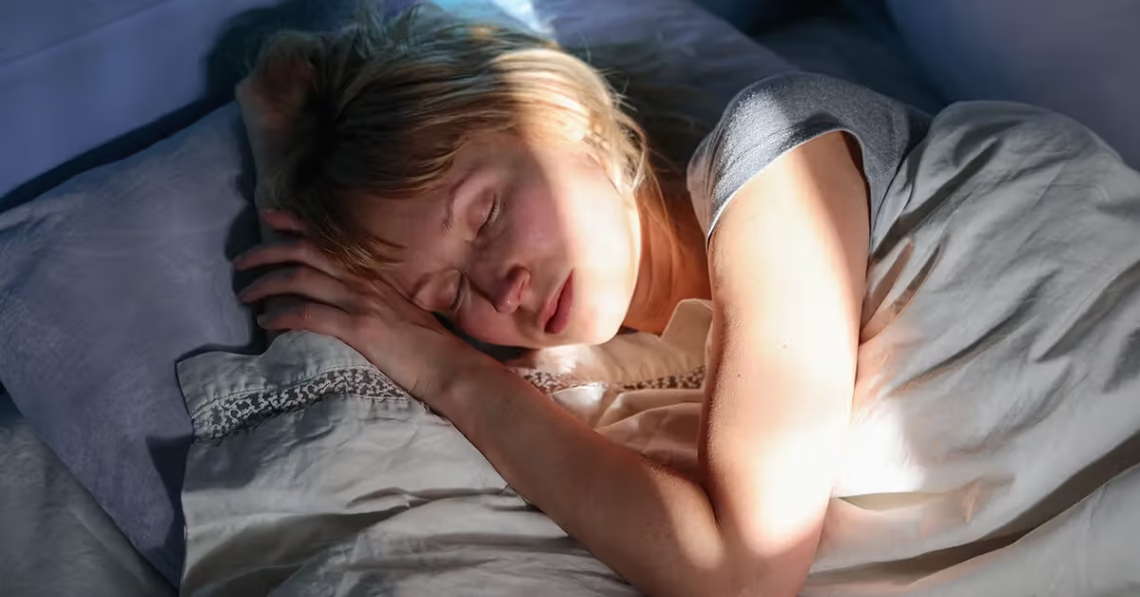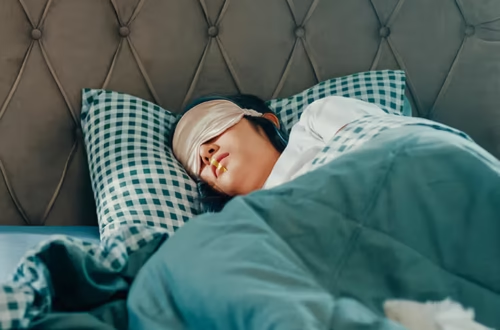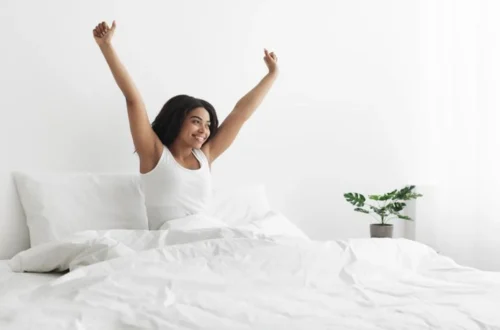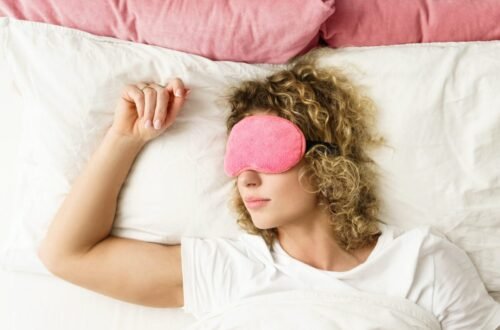Introduction to Quality Sleep
We’ve all had those nights—tossing and turning, counting sheep, or staring at the ceiling while the clock ticks on. I remember a particularly rough week when stress kept me awake, leaving me groggy and irritable. Quality sleep is the cornerstone of a healthy life, yet 35% of Americans struggle to get enough. This guide explores why sleep matters, offers practical tips to improve it, and tackles common sleep issues, blending science, personal stories, and actionable advice to help you wake up refreshed.
Why Sleep Is Essential
Sleep isn’t just a break from life—it’s when your body and mind recharge. From boosting memory to regulating mood, quality sleep impacts every aspect of health. The CDC reports that adults need 7–9 hours nightly, but 1 in 3 fall short, leading to issues like fatigue and chronic disease. Understanding sleep’s role can motivate you to prioritize it.
Physical Health Benefits
Sleep supports heart health, immune function, and metabolism. Studies show that poor sleep increases the risk of obesity by 55% and heart disease by 20%. It’s like giving your body a nightly tune-up to keep it running smoothly.
Mental and Emotional Benefits
Ever snapped at someone after a bad night’s sleep? Sleep regulates emotions and sharpens focus, reducing stress and anxiety. Research from Harvard links good sleep to better decision-making and a 50% lower risk of depression.
The Science of Sleep
Sleep follows a cycle of stages—light, deep, and REM—each vital for recovery. Deep sleep repairs tissues, while REM sleep boosts memory and creativity. Disruptions, like late-night screen time, can throw these cycles off. Knowing how sleep works helps you optimize it for better health.
Understanding Sleep Cycles
Each night, you cycle through 4–6 sleep stages, lasting about 90 minutes each. Light sleep eases you in, deep sleep heals your body, and REM fuels dreams. A full cycle ensures you wake up energized, not groggy.
The Role of Circadian Rhythm
Your circadian rhythm, a 24-hour internal clock, regulates when you feel sleepy or alert. Light exposure, especially blue light from phones, can disrupt it. Aligning your habits with this rhythm is key to consistent sleep.
Common Sleep Issues and Their Causes
Insomnia: The Sleep Thief
Insomnia—trouble falling or staying asleep—affects 30% of adults. Stress, caffeine, or irregular schedules often trigger it. I once battled insomnia during a hectic work period, and it felt like my brain forgot how to shut off.
Causes of Insomnia
Common culprits include anxiety, poor sleep hygiene, or medical conditions like thyroid issues. Chronic insomnia can last months, impacting mood and productivity. Identifying triggers is the first step to relief.
Impact on Daily Life
Insomnia leads to daytime fatigue, poor focus, and a 45% higher risk of accidents. It can also worsen mental health, creating a vicious cycle. Addressing it early prevents long-term consequences.
Sleep Apnea: When Breathing Stops
Sleep apnea causes breathing pauses during sleep, affecting 24 million Americans. Loud snoring and daytime tiredness are red flags. Untreated, it raises risks of hypertension and stroke by 30%.
Types of Sleep Apnea
Obstructive sleep apnea (OSA) results from airway blockages, while central sleep apnea involves brain signaling issues. OSA is more common, often linked to weight or anatomy. A sleep study can diagnose it.
Health Risks
Sleep apnea disrupts oxygen flow, straining the heart and brain. It’s linked to a 140% increased risk of heart failure. CPAP machines or lifestyle changes can significantly reduce symptoms.
Restless Legs Syndrome (RLS)
RLS causes an urge to move your legs, often at night, affecting 10% of adults. It’s like an itch you can’t scratch, keeping you awake. Iron deficiency or genetics can play a role.
Triggers and Symptoms
RLS is often linked to low iron, pregnancy, or medications like antidepressants. Symptoms worsen at night, disrupting sleep onset. Simple stretches or supplements can help manage it.
Managing RLS
Lifestyle changes like avoiding caffeine or regular exercise can ease RLS. For severe cases, medications like dopamine agonists work. Consult a doctor to rule out underlying conditions.
10 Practical Tips for Better Sleep
1. Stick to a Consistent Sleep Schedule
Going to bed and waking up at the same time daily syncs your circadian rhythm. Even on weekends, keep it within an hour. I started this habit, and it’s like my body now knows when to wind down.
How to Set a Schedule
Choose a bedtime that allows 7–9 hours of sleep. Use apps like Sleep Cycle to track consistency. Avoid drastic changes, as they can disrupt your rhythm for days.
2. Create a Relaxing Bedtime Routine
A calming routine signals your brain it’s time to sleep. Reading or meditating for 15 minutes works wonders. My nightly tea and journal session has become a sacred ritual.
Routine Ideas
- Read a Book: Fiction or light non-fiction to ease your mind.
- Meditate: Apps like Calm offer guided sessions.
- Avoid Screens: Blue light delays melatonin production by up to 3 hours.
3. Optimize Your Sleep Environment
Your bedroom should be a sleep sanctuary—cool, dark, and quiet. A 2023 study found that 65°F is ideal for most adults. I invested in blackout curtains, and it’s been a game-changer.
Bedroom Essentials
- Mattress: Medium-firm supports most sleepers (e.g., Casper or Tuft & Needle).
- Pillows: Choose based on sleep position (firm for side, soft for stomach).
- White Noise: Machines like LectroFan block disruptive sounds.
4. Limit Screen Time Before Bed
Blue light from phones or laptops suppresses melatonin, making it harder to sleep. Aim for a screen-free hour before bed. I switched to a paperback, and falling asleep got easier.
Blue Light Solutions
Use blue light filters on devices or wear blue-blocking glasses ($10–$30 on Amazon). Apps like f.lux adjust screen colors automatically. Keep your phone out of reach to avoid temptation.
5. Watch Your Diet and Caffeine
Heavy meals or caffeine late in the day can disrupt sleep. Caffeine’s effects can last 6–8 hours, so skip that 3 p.m. coffee. I learned this the hard way after a late espresso kept me up till 2 a.m.
Sleep-Friendly Foods
- Cherries: Natural melatonin source.
- Almonds: Magnesium promotes relaxation.
- Avoid: Spicy foods or alcohol, which disrupt REM sleep.
6. Exercise Regularly, But Not Too Late
Exercise improves sleep quality, but late workouts can energize you too much. Aim for morning or early afternoon sessions. My daily walks have boosted my energy and sleep.
Best Exercises for Sleep
- Yoga: Gentle poses like child’s pose relax the body.
- Walking: 30 minutes daily improves sleep duration.
- Timing: Finish vigorous exercise 3–4 hours before bed.
7. Manage Stress and Anxiety
Stress is a sleep killer. Techniques like journaling or deep breathing can calm your mind. I started writing down worries before bed, and it’s like offloading them onto the page.
Stress-Busting Tools
- Journaling: Use prompts like “What went well today?”
- Meditation Apps: Headspace or Insight Timer ($10–$70/year).
- Therapy: Online platforms like BetterHelp for chronic stress.
8. Try Sleep Supplements Wisely
Melatonin or magnesium can aid sleep, but consult a doctor first. Melatonin (1–5 mg) is effective for jet lag or shift work. I used melatonin during travel, and it reset my clock.
Supplement Options
- Melatonin: Available at CVS or Amazon ($5–$15).
- Magnesium: Glycinate form is best for sleep ($10–$20).
- Caution: Avoid long-term use without medical advice.
9. Limit Naps to Avoid Disruption
Naps can refresh you but disrupt nighttime sleep if too long or late. Keep naps to 20–30 minutes before 3 p.m. I stick to quick power naps, and they don’t mess with my night.
Nap Best Practices
- Timing: Early afternoon is ideal.
- Duration: 20 minutes prevents grogginess.
- Avoid: Late naps that delay bedtime.
10. Seek Professional Help When Needed
Persistent sleep issues may need a doctor’s input. Sleep studies can diagnose apnea or insomnia. After months of poor sleep, I saw a specialist who pinpointed my issue—game-changer.
When to See a Doctor
- Symptoms last over a month.
- Daytime fatigue impacts work or safety.
- Snoring or gasping during sleep.
Comparing Sleep Solutions
| Solution | Best For | Cost | Effectiveness |
|---|---|---|---|
| Sleep Apps | Tracking, relaxation | Free–$70/year | Moderate–High |
| Air Purifiers | Allergy relief, better air | $50–$300 | Moderate |
| CPAP Machines | Sleep apnea | $500–$1,000 | High |
| Melatonin | Jet lag, occasional insomnia | $5–$15 | Moderate |
Natural vs. Medical Solutions
- Natural: Routines, diet, and exercise are low-cost and sustainable but take time.
- Medical: CPAP or medications offer quick relief for severe issues but require professional oversight.
Pros and Cons of Sleep Interventions
| Intervention | Pros | Cons |
|---|---|---|
| Sleep Hygiene | Free, sustainable, widely effective | Requires discipline |
| Supplements | Quick relief for occasional issues | Possible side effects, dependency |
| Professional Help | Targeted for severe conditions | Costly, time-consuming |
Personal Story: My Sleep Transformation
A few years ago, I was a night owl, scrolling through my phone until 1 a.m., only to drag myself through the next day. My energy tanked, and my mood wasn’t much better. Determined to change, I started small—cutting out late coffee, setting a bedtime, and using blackout curtains. The difference was night and day (pun intended). Now, I sleep 8 hours most nights, and my mornings are productive. It wasn’t easy, but these tweaks turned sleep from a struggle into a strength.
People Also Ask (PAA) Section
Why is quality sleep so important?
Quality sleep boosts physical health, mental clarity, and emotional balance. It reduces risks of obesity, heart disease, and depression. Prioritizing 7–9 hours nightly enhances overall well-being.
How can I improve my sleep quality naturally?
Stick to a consistent schedule, create a relaxing bedtime routine, and optimize your bedroom (cool, dark, quiet). Avoid screens and caffeine late in the day. Apps like Calm can guide relaxation.
What are common sleep disorders?
Insomnia, sleep apnea, and restless legs syndrome are prevalent. Insomnia affects 30% of adults, apnea impacts 24 million, and RLS bothers 10%. Each requires specific treatments like CPAP or lifestyle changes.
Where can I get help for sleep apnea?
Consult a sleep specialist for a sleep study, available at clinics like Mayo Clinic or local hospitals. CPAP machines are sold by ResMed or Philips. Check SleepFoundation.org for resources.
FAQ Section
What’s the best way to fall asleep faster?
Create a calming routine, like reading or meditating, and avoid screens an hour before bed. Keep your bedroom cool and dark. Apps like Headspace can help with guided relaxation.
How do I know if I have sleep apnea?
Loud snoring, gasping during sleep, or daytime fatigue are signs. A sleep study, arranged through a doctor or clinic, confirms it. Visit SleepApnea.org for more information.
Can diet affect sleep quality?
Yes, heavy meals, caffeine, or alcohol disrupt sleep. Foods like cherries or almonds promote rest. Avoid eating 2–3 hours before bed for better sleep.
Where can I buy a good mattress for sleep?
Casper, Tuft & Needle, or Purple offer quality mattresses ($500–$1,500). Check Amazon or Mattress Firm for deals. Read reviews on SleepFoundation.org for guidance.
How much sleep do I really need?
Adults need 7–9 hours nightly, per the CDC. Individual needs vary—track your energy levels with apps like Sleep Cycle to find your sweet spot.
Transactional Content: Best Tools for Quality Sleep
Mattresses and Bedding
- Casper Wave Hybrid: Supports all sleep positions ($1,000–$2,000).
- Tuft & Needle Mint: Budget-friendly comfort ($500–$1,200).
- Where to Buy: Amazon, Mattress Firm, or direct from brands.
Sleep Tech
- Sleep Cycle App: Tracks sleep patterns (free–$30/year).
- Oura Ring: Monitors sleep and activity ($299–$399).
- White Noise Machines: LectroFan ($40–$60) on Amazon.
Resources for Sleep Help
- SleepFoundation.org: Free guides on sleep disorders and solutions.
- Calm App: Guided meditations ($70/year) on App Store or Google Play.
- Books: “Why We Sleep” by Matthew Walker, available on Amazon.
Conclusion: Your Path to Better Sleep
Sleep isn’t a luxury—it’s a necessity that fuels your body and mind. My own journey from sleepless nights to restful slumber showed me that small changes, like a consistent schedule or a better bedroom setup, can transform your life. These tips and tools, from blackout curtains to meditation apps, make quality sleep achievable. Explore SleepFoundation.org for more resources, try a melatonin supplement for occasional help, or consult a doctor for persistent issues. Tonight, take one step toward better rest—you’ll thank yourself in the morning.





